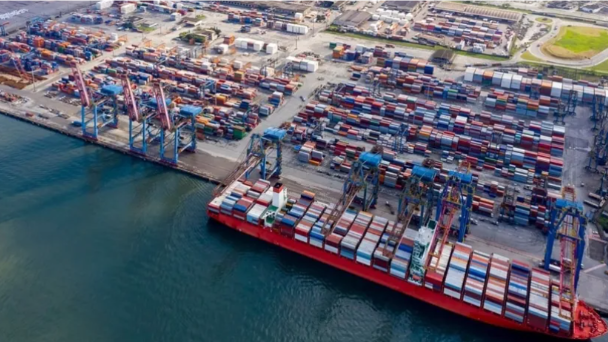The world’s fifth-largest container shipping company experienced a surge in business this week, with its CEO attributing the increase to a wave of pent-up transpacific demand released by a recent trade war truce.
Hapag-Lloyd CEO Rolf Habben Jansen revealed during the company’s Q1 earnings call that bookings on the China–U.S. route had spiked since the weekend. “Driven by the preliminary tariff agreement reached over the weekend, we’ve seen a significant increase in volumes in the past few days,” he told analysts.
Bookings this week jumped by more than 50% compared to last week, partly due to falling freight rates and also because cargo that had accumulated in China now needs to be shipped. “It’s hard to predict whether this wave will last 60 to 90 days or longer, but we don’t expect it to persist for too long. It will also depend on further negotiations between China and the U.S.,” added Habben Jansen.
Cautious Optimism
In a follow-up interview after releasing the Q1 results, Jansen said that although there is “limited visibility” due to tariff uncertainties, he remains “cautiously optimistic that we are not heading into a recession.”
Since late 2023, when Houthi militants in Yemen began attacking commercial vessels in the Red Sea, major shipping lines including Hapag-Lloyd have avoided the region. The rerouted journeys around southern Africa are significantly longer, reducing global container capacity and supporting higher freight rates.
Hapag-Lloyd stated on Wednesday that despite the ceasefire announced earlier this month, the long-term safety of commercial vessels remains uncertain.
In its quarterly report, the company noted: “It remains unclear when transport through the Red Sea will be safely restored, which means shipping costs are expected to remain elevated due to the necessary detours around the Cape of Good Hope.”
Ensuring Safety
In an interview with Bloomberg TV, Jansen added: “We need to make sure it is safe, and that it stays safe over a longer period, because we want to avoid rushing in and out at all costs.”
He warned that returning to the Red Sea route via the Suez Canal too quickly could lead to severe congestion, which “everyone wants to avoid.” For this reason, Hapag-Lloyd plans to gradually reintroduce traffic through the canal once it is deemed safe, aiming to prevent port disruptions and ensure supply chain continuity.
He added that once implementation begins, the rerouting back to the original route could take 60 to 90 days.
In February this year, Hapag-Lloyd formed a vessel-sharing alliance called Gemini Cooperation with A.P. Moller-Maersk A/S, the world’s second-largest container shipping company, headquartered in Copenhagen.

Last
Brazil s Port Bottlenecks Raise Supply Chain Alarm
The condition of Brazil’s ports has become a critical obstacle for the agribusiness sector, directly affecting key supply chains f

Next
Environmental and Anti-War Protesters Target Maersk Tankers and Offices in Copenhagen and Rotterdam
On Tuesday, climate activist Greta Thunberg and protesters from the Danish environmental group Den Gronne Ungdomsbevaegelse briefl
